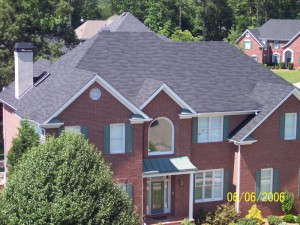 One of the most popular idioms indicating a stable lifestyle is “having a roof over your head”, as in “At least we have a roof over our head and food on the table!”. It’s your roof that protects the things you value most, not only the investment itself but your family and possessions.
One of the most popular idioms indicating a stable lifestyle is “having a roof over your head”, as in “At least we have a roof over our head and food on the table!”. It’s your roof that protects the things you value most, not only the investment itself but your family and possessions.
Leaks not only threaten your wallet but left untreated, they can spread and cause problems like mold and dampness which can cause health problems, to damaging ceilings, walls, even the electrical system risking power outages or fire!
The good news is, with regular inspections, you can limit the damage and even prevent these problems. Don’t confuse home inspections with roof inspections, and if you aren’t sure of the difference you owe it to yourself to get familiar.
What Is (& Why Do I Need) A Professional Roof Inspection?
There are three purposes of a roof inspection
- Assess what repairs are needed (if any)
- Estimate the roofs remaining lifespan
- Issue a certificate of inspection
When purchasing a home, home inspectors generally do not perform rooftop inspections and can not give the answer as to how long the roof will last. This job is specifically left to professional roof contractors or roofing inspection specialists to accurately estimate.
Roof inspection is definitely not a job for the average person or “do-it-yourselfer”as even getting up on the roof and walking around can be dangerous if you don’t know what you are doing. Without proper equipment and safety procedures you are nor only risking missing important things, the risk of injury is great.
Any time you need information about your roof you need a professional roof inspection, having a professional handle the inspection will ensure you get accurate information about your roof and that the inspection is performed correctly and safely.
When Should My Roof Be Inspected?
Generally once a year for homeowners and twice a year for businesses as a part of a routine of regular maintenance but also:
- After a new roof has been installed (to ensure everything was done correctly and to code)
- Following a major storm or other event (to be sure any damage is taken care of promptly and within any applicable deadlines for insurance)
- When you are buying or selling a home
Even new roofs need regular inspections (it is often mandated by warranties and insurance) don’t fall prey to thinking as long as you don’t notice anything everything is fine. Be aware of your obligations to warranties and your insurance.
What Does The Inspector Look At?
The roofing inspector you hire will have a detailed checklist of everything he needs to look at so that nothing is missed, these include:
- Roofing material: General condition, wear and tear, granule loss on shingles, and damaged, curling, loose, or missing shingles and/or fasteners)
- The exterior roof structure: Any deterioration, sagging, deformation, staining, damage or rotting to soffit, fascia, or flashings, clogged gutters or inadequate pitch)
- The interior of the roof from the attic: Cracks, stains, dampness, leaks, etc.
- Inspection of ceilings under the attic: Cracks, stains, moisture and the like.
Any recent repairs to the roof will also be examined and evaluated for effectiveness and quality.
Finally at completion of the inspection, you will be issued a written report noting any problems with recommendations and follow-up action if necessary.
Atlanta Roofing Specialists provides free estimates and paid inspections throughout Metro Atlanta, call us at 770-419-2222 and schedule your next roof inspection with us today!
